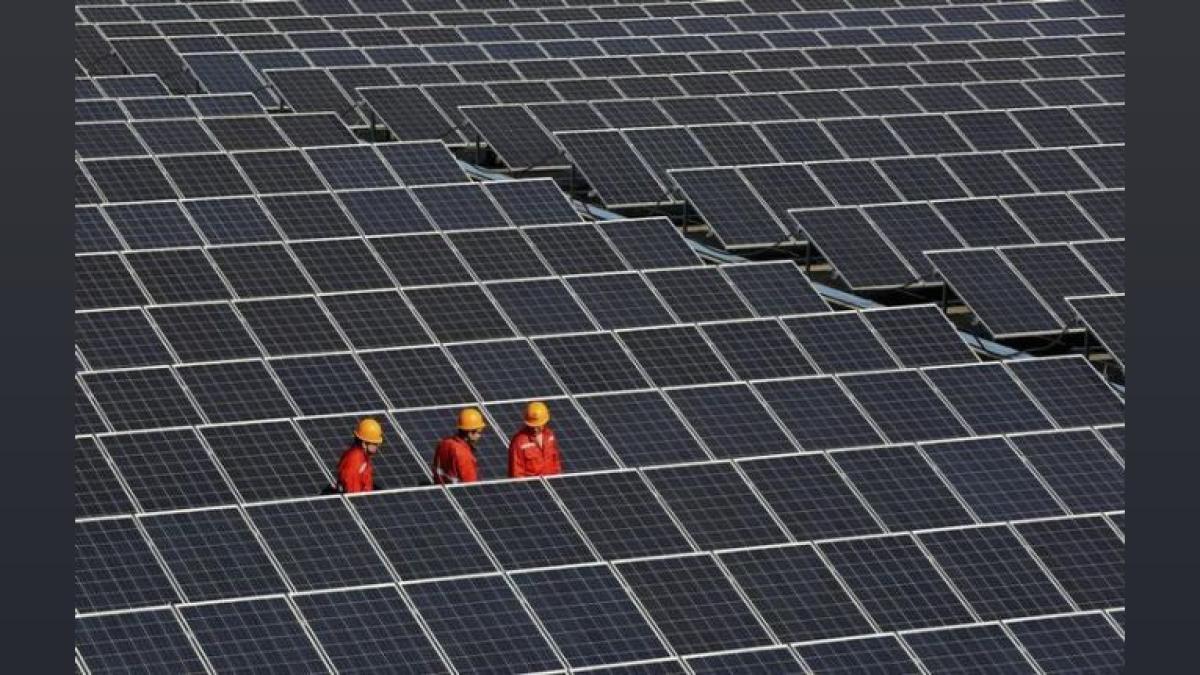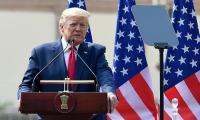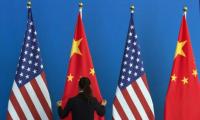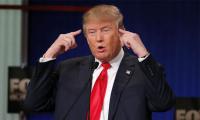Trump's Tariff Threat on India: WTO Violation & Reciprocal Duties
US President-elect Donald Trump's threat to impose tariffs on Indian goods raises concerns about violating WTO norms. An official urges a wait-and-see approach to assess the impact on trade.

New Delhi, Dec 18 (PTI) Imposing reciprocal duties violates global trade rules but one has to follow a "wait and wait" approach to US President-elect Donald Trump's remarks on imposing reciprocal tariffs, a senior official said on Wednesday.
US President-elect Donald Trump has said that India charges a lot of tariffs, reiterating his intention to impose reciprocal tariffs in retaliation for what New Delhi will impose on the import of certain American products.
Trump made these remarks on Tuesday and also said that India and Brazil were among countries that impose high tariffs on certain US products.
"It will be very difficult to decipher from one or two sentences which Mr Trump makes but if I understood from what he was saying. His main intent is that reciprocity will matter in future. So if you are putting a tax on Harley-Davidson (bikes) we will also put a tax on your motorbike exports. So from that point of view, this will be in clear violation of the WTO (World Trade Organization) norms but there are instances when Mr Trump has used measures like Section 232 of the Tariff Act which allows the US to take unilateral measures against countries on national security grounds.
"So one will have to wait and watch and see," Director General of Foreign Trade (DGF) Santosh Kumar Sarangi said here at CII's export competitiveness event.
He said that there are many areas where India has tariff peaks but the country does not necessarily export those to the US.
For example, India has high customs duties on a number of agri goods but they are not necessarily exported to America.
"So if the US uses reciprocity and imposes taxes on that, it will not harm us in a major way but there could be a few items where this reciprocal principle thing might impact us," he said.
Further, he added, "So one has to wait and watch, how it is panning out and the fine print of this will be available only after they undergo a process like they have a process like they have a process where the USTR (US Trade Representative) examines, investigates and recommends an action. Before guessing the impact, one will have to wait and watch as to which are the kind of products that they are looking at."
In 2019, Trump repeatedly claimed that India is a "tariff king" and imposes "tremendously high" tariffs on American products. He has criticised India's "big tariffs" on American paper products and the iconic Harley-Davidson bikes.
The US was the largest trading partner of India in 2023-24. India's exports stood at USD 77.51 billion, while imports aggregated at USD 42.2 billion in the last fiscal.
In FY2024, India's top exports to the US included medicines (USD 8 billion), Garments and Made-ups (USD 7.5 billion), Cut and Polished Diamonds (USD 5.6 billion), Smartphones (USD 5.6 billion), Solar Cells (USD 1.9 billion), Shrimps (USD 1.7 billion), Gold Jewellery (USD 3.3 billion), Auto Parts (USD 2.1 billion), Steel (USD 475 million), and Articles of Steel (USD 2.8 billion).
Commenting on the Trump remarks, think tank GTRI said while Indian tariffs comply with WTO rules, the proposed Trump tariffs would violate them.
"Even though Trump's claims about Indian tariffs may be overstated, India can seize this moment to strategically review its tariff structure. India's average tariff stands at 17 per cent, significantly higher than the USA's 3.3 per cent, but comparable to countries like South Korea (13.4 per cent) and China (7.5 per cent)," Global Trade Research Initiative (GTRI) Founder Ajay Srivastava said.
He said that if Trump proceeds with unilateral tariffs against India, he will be violating the US commitments at the WTO on tariffs.
In this case, India should be ready to respond decisively, he said.
In 2018, when the US imposed tariffs on Indian steel and aluminium, India retaliated by increasing tariffs on 29 specific American products. This well-calibrated response ensured that India collected equivalent revenue from US imports, demonstrating its ability to safeguard trade interests while maintaining a balanced approach.
"India must be prepared to navigate potential challenges in the Trump era and not be caught off guard," Srivastava said, adding that a targeted reduction in tariffs could be advantageous for India, aligning with its goal of boosting low-cost, value-added manufacturing and trade.
US President-elect Donald Trump has said that India charges a lot of tariffs, reiterating his intention to impose reciprocal tariffs in retaliation for what New Delhi will impose on the import of certain American products.
Trump made these remarks on Tuesday and also said that India and Brazil were among countries that impose high tariffs on certain US products.
"It will be very difficult to decipher from one or two sentences which Mr Trump makes but if I understood from what he was saying. His main intent is that reciprocity will matter in future. So if you are putting a tax on Harley-Davidson (bikes) we will also put a tax on your motorbike exports. So from that point of view, this will be in clear violation of the WTO (World Trade Organization) norms but there are instances when Mr Trump has used measures like Section 232 of the Tariff Act which allows the US to take unilateral measures against countries on national security grounds.
"So one will have to wait and watch and see," Director General of Foreign Trade (DGF) Santosh Kumar Sarangi said here at CII's export competitiveness event.
He said that there are many areas where India has tariff peaks but the country does not necessarily export those to the US.
For example, India has high customs duties on a number of agri goods but they are not necessarily exported to America.
"So if the US uses reciprocity and imposes taxes on that, it will not harm us in a major way but there could be a few items where this reciprocal principle thing might impact us," he said.
Further, he added, "So one has to wait and watch, how it is panning out and the fine print of this will be available only after they undergo a process like they have a process like they have a process where the USTR (US Trade Representative) examines, investigates and recommends an action. Before guessing the impact, one will have to wait and watch as to which are the kind of products that they are looking at."
In 2019, Trump repeatedly claimed that India is a "tariff king" and imposes "tremendously high" tariffs on American products. He has criticised India's "big tariffs" on American paper products and the iconic Harley-Davidson bikes.
The US was the largest trading partner of India in 2023-24. India's exports stood at USD 77.51 billion, while imports aggregated at USD 42.2 billion in the last fiscal.
In FY2024, India's top exports to the US included medicines (USD 8 billion), Garments and Made-ups (USD 7.5 billion), Cut and Polished Diamonds (USD 5.6 billion), Smartphones (USD 5.6 billion), Solar Cells (USD 1.9 billion), Shrimps (USD 1.7 billion), Gold Jewellery (USD 3.3 billion), Auto Parts (USD 2.1 billion), Steel (USD 475 million), and Articles of Steel (USD 2.8 billion).
Commenting on the Trump remarks, think tank GTRI said while Indian tariffs comply with WTO rules, the proposed Trump tariffs would violate them.
"Even though Trump's claims about Indian tariffs may be overstated, India can seize this moment to strategically review its tariff structure. India's average tariff stands at 17 per cent, significantly higher than the USA's 3.3 per cent, but comparable to countries like South Korea (13.4 per cent) and China (7.5 per cent)," Global Trade Research Initiative (GTRI) Founder Ajay Srivastava said.
He said that if Trump proceeds with unilateral tariffs against India, he will be violating the US commitments at the WTO on tariffs.
In this case, India should be ready to respond decisively, he said.
In 2018, when the US imposed tariffs on Indian steel and aluminium, India retaliated by increasing tariffs on 29 specific American products. This well-calibrated response ensured that India collected equivalent revenue from US imports, demonstrating its ability to safeguard trade interests while maintaining a balanced approach.
"India must be prepared to navigate potential challenges in the Trump era and not be caught off guard," Srivastava said, adding that a targeted reduction in tariffs could be advantageous for India, aligning with its goal of boosting low-cost, value-added manufacturing and trade.
You May Like To Read
TODAY'S MOST TRADED COMPANIES
- Company Name
- Price
- Volume
- Vodafone Idea L
- 8.10 (+ 18.94)
- 352105814
- GTL Infrastructure
- 1.50 (+ 7.14)
- 20982285
- G G Engineering
- 0.90 (+ 11.11)
- 20091512
- AvanceTechnologies
- 0.54 ( -8.47)
- 18780688
- YES Bank Ltd.
- 17.33 (+ 2.61)
- 14468025






 © 2025 Rediff.com India Limited. All rights reserved.
© 2025 Rediff.com India Limited. All rights reserved.